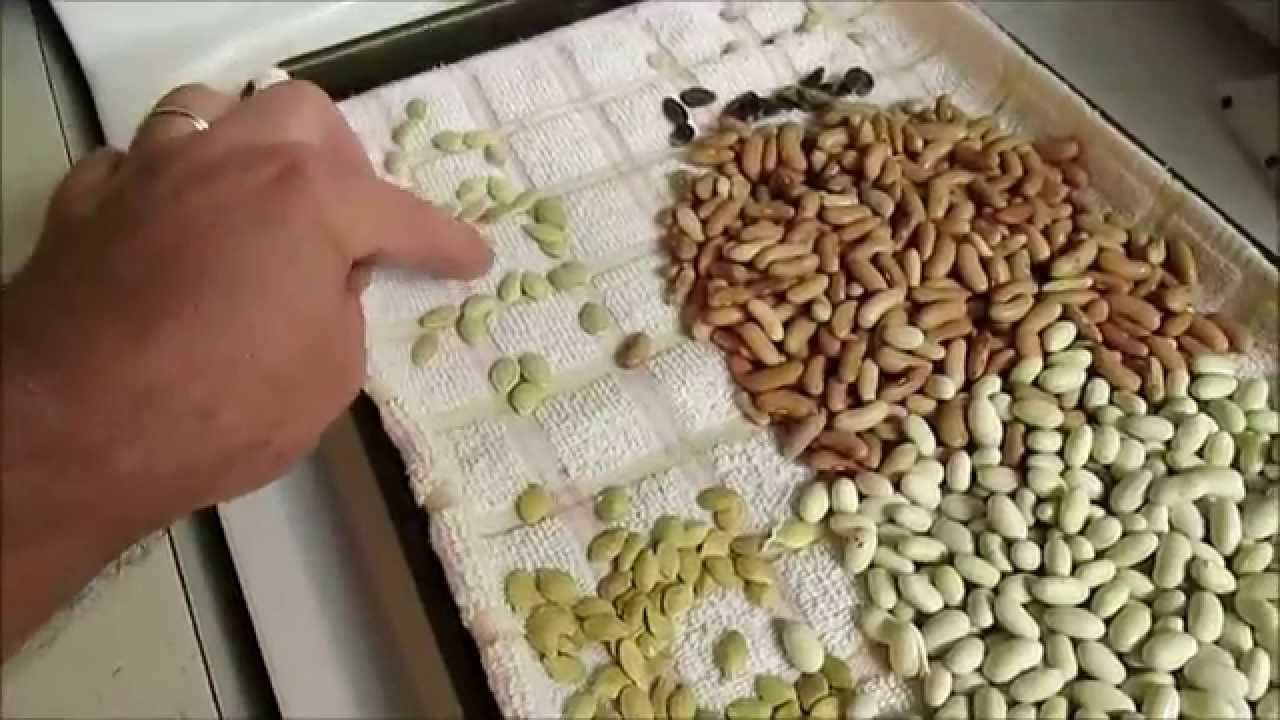Gardeners who lack patience may question whether or not soaking is truly important given that it must be done a few hours before planting and ideally overnight. Soaking seeds is a crucial step in the germination process, and once you’re on board, we’ll explain why and how it works.
Does it Make a Difference to Soak Seeds? Simply put, no. Over millions of years of evolution, seeds germinate naturally in the wild and reproduce without any assistance from humans. That means you don’t need to do that extra step in order to plant seeds successfully. However, there are numerous advantages to soaking that justify the time and energy involved
Trigger Germination
We all know that seeds can’t sprout without water.
The precipitation patterns in various places mean that various amounts of moisture are necessary to activate various types of seeds. Because of the increased moisture around the seed due to the rain, the plant will begin the germination process once it is ready.
All seeds have a moisture sensor that can be activated by pre-soaking them in water. It’s not necessary to use a seed-starting mix, which could take longer.
They are instead dormant until planted, at which point they will immediately begin growing.
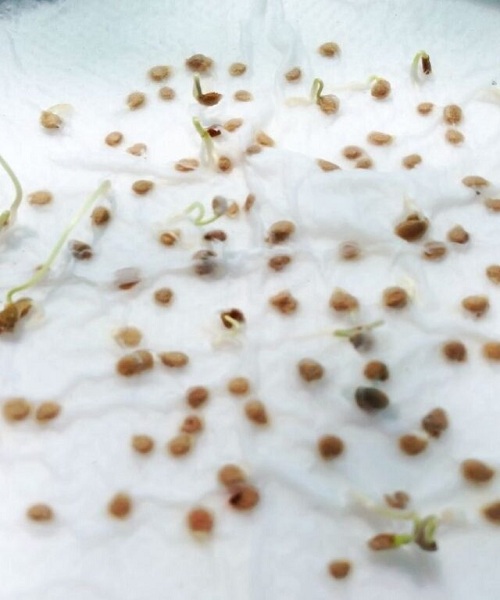
Speed up the germination process
Seeds can be ready for transfer much sooner if germination is induced before they are planted in the ground (or in trays). You shouldn’t have to wait as long for your seeds to germinate because there is no moisture barrier to overcome.
This can be sped up by using warm water.
Seeds have moisture and temperature sensors that must both be met for germination to occur. These keep the seeds in the pod until the weather warms up enough to germinate them, protecting the tender new growth.
The perfect conditions for rapid germination are provided by the warm water, which is at the same temperature as the seed at which it is planted. In conjunction with a heating pad to maintain a warm soil temperature (particularly when starting seeds early), this will produce seedlings much more quickly than you anticipated.
You can still get your seedlings in the ground before it’s too late, which is why this is perfect for late-season planting.
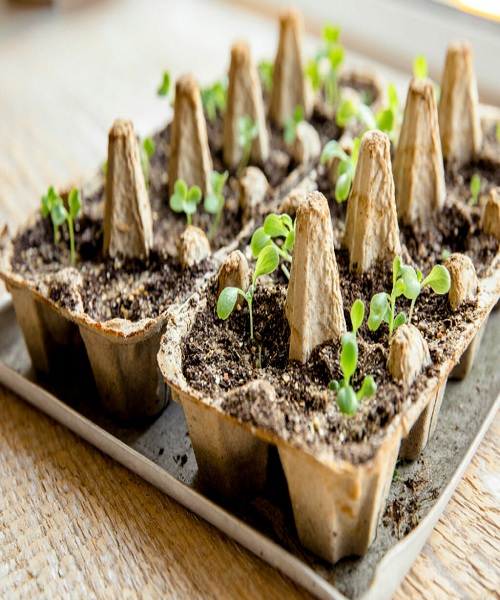
Discard Germination Inhibitors
It may sound contradictory, but the environment around some seeds actually contains substances that prevent germination. This strategy is put in place to stop them from germinating inside the fruit at the wrong time.
Typically, wind or rain can eliminate these inhibitors spontaneously, although this can take some time. If you soak your seeds first, you can remove any potential obstacles to germination.
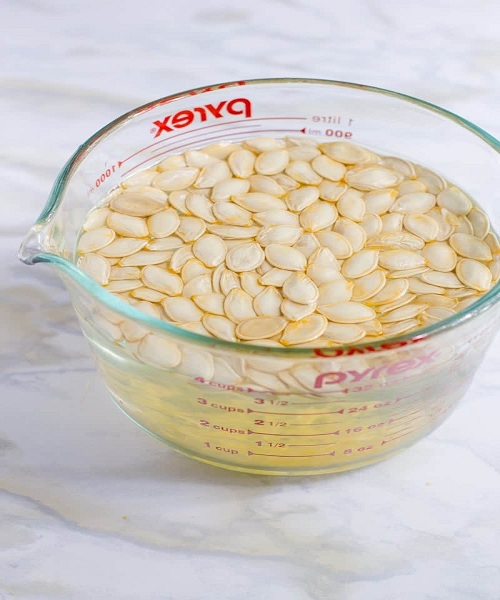
Deconstruct Natural Defenses
Seeds can withstand a lot of abuse before finding their final resting place. They can withstand the wind, the rain, and the stomach acid of the many creatures that may eat them before they finally germinate.
This is why many seeds have tough exterior shells that protect them from the outdoors. Soaking your seeds is an easy way to bypass Mother Nature’s slow process of neutralizing these protections, which can take days or weeks.
It won’t be necessary to remove anything before planting after they’ve been soaked.
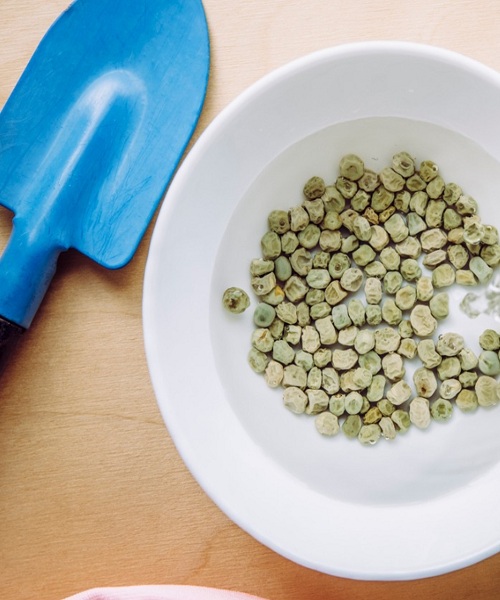
Better Your Chances
Every year, plants create trillions of seeds. However, due to the many difficulties we discussed, not all of them will sprout.
They scatter numerous seeds with the expectation that some would take root; only a fraction of these need to germinate for the species to multiply.
You can’t just hope that your uncommon or expensive seeds will germinate, or even your regular seeds.
It is possible for seeds to germinate without being soaked, but doing so significantly improves success rates (depending on the plant). This additional work is justified if you desire more trustworthy outcomes.
How to soak the seeds
Since we have covered the why we can go on to the how:
Get a clean dish or sterile container and set it up first. Put in the seeds you’ve chosen and cover them with hot water—ideally, as hot as you can stand it while still touching the water. Most seeds won’t germinate if you soak them in boiling water because the temperature is too high.
Put the basin with the seeds in a warm area for at least 8 hours, ideally overnight. Most seeds won’t benefit from soaking for more than 24 hours, but you can soak them for as long as you like. The optimal time for soaking is between 8 and 12 hours.
It may be necessary to scarify the seeds you’ve picked if they have a very tough hull. To accomplish this, the outside must be damaged in some way before soaking to increase the likelihood of water penetration.
Fine sandpaper, a sharp knife, or even a hammer can be used for scarification. But take care not to overdo it, as doing so could kill the seeds.
You should immediately plant your seeds into damp soil after soaking. After soaking, the seeds must not be allowed to dry out again; otherwise, germination is unlikely to succeed. Avoid wasting your time by letting the soil dry up before the seeds have fully germinated after soaking them.
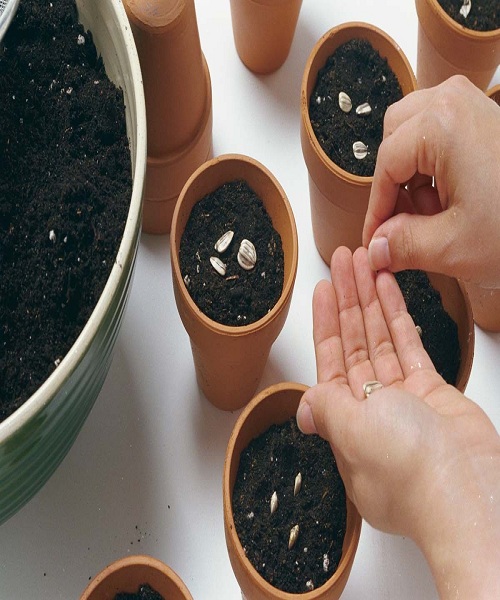
What kinds of seeds can be soaked?
Smaller seeds don’t need to be soaked like their larger, harder-shelled counterparts do. Overcrowding occurs because little seeds cling together during the soaking process and are difficult to separate.
It is recommended to soak larger or harder-shelled seeds before planting them to facilitate gemination. Among these are:
- Beans
- Sunflowers
- Cucumbers
- Peas
- Squash
- Beets
- Pumpkin
Similarly, soaking onion sets and garlic cloves before planting them outside will hasten their germination.
Avoid Soaking These Seeds
After being wet, some tiny seeds spread too far to be handled. Don’t soak these seeds before planting them.
- Lettuce
- Chia
- Radishes
- Carrots
- Basil
- Foxgloves
There is no need to soak zinnia seeds before planting them because they germinate at the first indication of wetness.
Soaking will significantly enhance your germination rates and accelerate the process.
However, even after sowing, seeds require attention. If you want your initial effort to bear fruit, you’ll need to maintain the soil moist and the tray warm.

